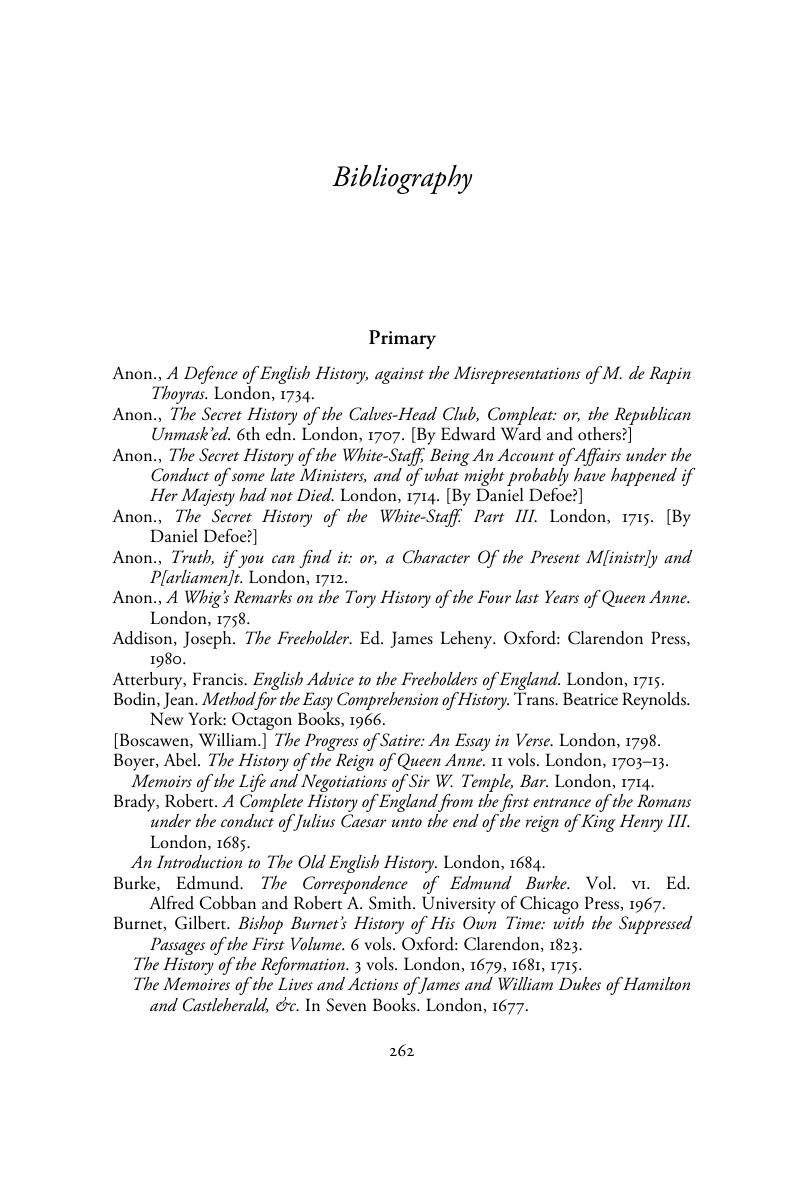Book contents
- Swift and History
- Swift and History
- Copyright page
- Dedication
- Dedication
- Contents
- Book part
- Glossary
- Introduction
- Chapter 1 Swift and the historians, ancient and modern
- Chapter 2 Swift, Temple, and the history of England
- Chapter 3 The uses of history in Swiftian satire and polemic
- Chapter 4 ‘Swift’s rhapsodical Tory-book’
- Chapter 5 Swift and authority
- Conclusion
- Notes
- Bibliography
- Index
- References
Bibliography
Published online by Cambridge University Press: 05 May 2015
- Swift and History
- Swift and History
- Copyright page
- Dedication
- Dedication
- Contents
- Book part
- Glossary
- Introduction
- Chapter 1 Swift and the historians, ancient and modern
- Chapter 2 Swift, Temple, and the history of England
- Chapter 3 The uses of history in Swiftian satire and polemic
- Chapter 4 ‘Swift’s rhapsodical Tory-book’
- Chapter 5 Swift and authority
- Conclusion
- Notes
- Bibliography
- Index
- References
Summary

- Type
- Chapter
- Information
- Swift and HistoryPolitics and the English Past, pp. 262 - 277Publisher: Cambridge University PressPrint publication year: 2015



